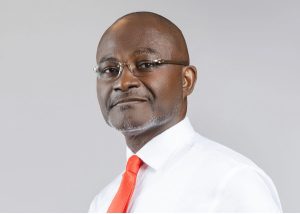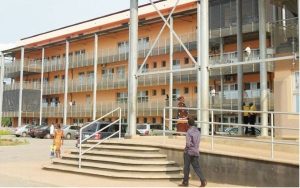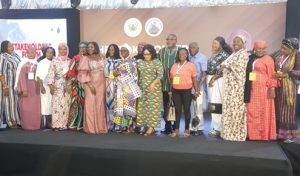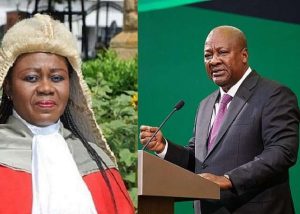By: Prince Adjei – Guy Gee
As the NPP embarks on a nationwide “Thank You” tour, many party faithful and ordinary Ghanaians cannot help but reflect deeply on what really led to the party’s painful defeat. Contrary to the attempts to shift blame solely onto internal campaign issues, the real causes were rooted in the government’s actions and failures under President Akufo-Addo’s leadership.
Among the key issues that broke the trust of the Ghanaian people were:
• Reshuffle Neglect: Refusal to reshuffle non-performing ministers despite public outcry led to fatigue and loss of confidence in governance.
• E-Levy Disaster: The controversial E-Levy policy created mass dissatisfaction and worsened the economic burden on citizens.
• Cost of Living Crisis: Soaring prices of food, transport, and utilities crushed ordinary families.
• DDEP (Debt Exchange Program): Pensioners and investors were brutally affected, leading to widespread resentment.
• Arrogance of Power: Some government appointees became disconnected from the grassroots, displaying sheer arrogance instead of service.
• Broken Delegates System: Money politics and favoritism demoralized many grassroots members.
• NABCO and Non-Payment: Thousands of young people were abandoned without payments, killing hope among the youth.
• Caterers, Afforestation Workers Unpaid: Vulnerable groups were neglected, breeding anger at the base.
• National Cathedral Scandal: Mismanagement of state funds towards a personal religious project left a bitter taste.
• Galamsey and Environmental Destruction: Despite promises, the galamsey menace worsened under NPP leadership.
• Petrol Prices Increased 3 Days to Elections: Shockingly, just days to the elections, fuel prices went up — a final slap that fueled voter anger.
Clearly, the problem was governance itself, and not the ordinary foot soldiers, MPs, or campaign teams. The government must take full responsibility.
Religious and Tribal Factors: The Silent Destroyers
One of the most sensitive but undeniable factors that hurt the NPP campaign was religion and tribalism.
As revealed by Lawyer William Kusi, just the Sunday before the elections, he visited an Assemblies of God Church in Kumasi where the conversation among the congregation was,
“Is Ghana ready for a Muslim president?”
This exposed deep-seated religious fears among Christian communities, many of whom were not ready to cross that line, no matter the political promises.
At the same time, the Muslim and Zongo communities themselves were divided over Dr. Bawumia’s faith:
• Many Zongo youth and Islamic leaders accused Dr. Bawumia of being a “fake Muslim”, citing behaviors such as:
• Eating pork,
• Participating in Christian communion,
• Dancing in churches,
• Appearing to abandon core Islamic practices.
This disillusionment weakened what could have been a solid Zongo support base.
Further, among the Kusasi communities, another painful narrative brewed:
• It was widely believed that Dr. Bawumia covertly supported his Mamprusi people in the tribal conflicts at Bawku, leading to loss of lives and hardship.
• The Kusasis, feeling betrayed, voted massively against the NPP, seeing it as standing with their rivals in a bloody ethnic conflict.
These underlying religious and tribal grievances silently eroded the NPP’s support across key regions, contributing significantly to the devastating defeat.
The Political Lesson
The lesson is clear:
• You cannot build national leadership on division, religious suspicion, and tribal favoritism.
• You cannot ignore the real suffering of ordinary people and expect loyalty at the ballot box.
• You cannot preside over arrogance and impunity and think the party’s colors alone will win elections.
The people want integrity, fairness, respect, and unity — not divisiveness and broken promises.
Going forward, if the NPP desires a comeback, it must be brutally honest about these realities and rebuild trust from the bottom up — not through blame games, but through genuine repentance and reform.









